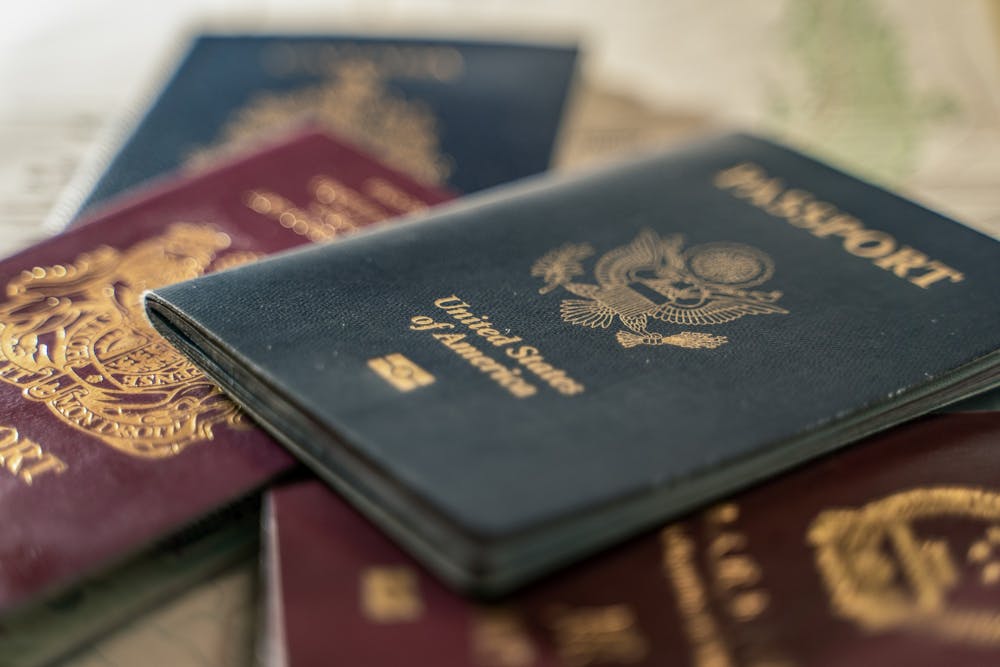
Penn Global will relocate two of its Global Research & Internship Program cohorts from cities in China to Seoul, South Korea in light of the coronavirus outbreak.
Penn Global Senior Associate Director Erica Sebastian said GRIP summer programs were moved following the University’s decision to cancel all spring study abroad programs in China, as well as the United States Department of State's February advisory against all non-essential travel to China.
The two programs, Law and International Affairs in Beijing and Engineering in Shenzhen, will place students at Seoul companies in their respective fields.
Sebastian said Penn Global will work to ensure GRIP applicants’ access to global internships in other locations this summer.
“By relocating the programs we are able to increase the likelihood that the program will run and that students will be able to have this experience,” Sebastian said.
The Global Research & Internship Program allows students to participate in one of its pre-approved internships or research placements with guaranteed funding across the globe. Currently, GRIP has over 35 programs in 25 countries.
GRIP offers two types of internship placements, cohort and direct placement. Students in the cohort program do not apply to a specific job, but instead to a general field in a location, like Law and International Affairs in Beijing and Engineering in Shenzhen. Students in the direct placement program apply for internships at specific companies through GRIP.
The cohort programs originally in China will accept five students each. GRIP is still finalizing the Seoul-based companies where the groups will work.
Although the cohort programs will continue in Seoul, Penn Global has yet to find suitable replacements for its three direct placement programs in China. According to Sebastian, GRIP is currently exploring different alternatives for the original direct placement programs.
College first year Rebecca Jiang, who applied for the GRIP direct placement in Shanghai, said she received an email last week from Penn Global that said the programs in China were canceled and that GRIP is still working to find alternate locations.
“To be perfectly honest, I wasn't surprised, just because [the coronavirus outbreak has] been a big part of the news,” Jiang said.

Jiang said she is worried the program will be canceled. She interviewed with a recruiter from the Chinese company Keru a few days before she received the email from GRIP, and said her interviewer did not mention that the coronavirus outbreak would change her potential internship.
“I also recently had my interview for the direct placement, and the interviewer didn't say anything about moving the placement away from China,” Jiang said.
Sebastian said Penn Global will continue its direct and cohort placement in Hong Kong and other locations in the region. She added that direct placement is more difficult to relocate because it usually involves specific companies, unlike cohort placement, which is more general.
“It's a bit more complicated because we can’t move the companies themselves out of China,” Sebastian said. “We have let our GRIP China direct applicants know that we are exploring options and we will be keeping in close touch with those students in the coming days and weeks.”
Wharton senior Jia Wei Teo interned in Beijing at the Golden Bridges nonprofit during the summer of 2017 as part of GRIP’s direct placement program. She said students who want to work or study in China should wait until the virus outbreak is over and re-apply next year.
“If you want to have that experience in China, it's not very easy to just replace it somewhere else,” Teo said.
College senior Xin Liu, who attended a Penn Global Seminar in Shanghai, said an abroad experience in China is a unique way for students to understand Chinese culture. She added that the Chinese abroad experience is helpful for understanding political tensions between the United States and China, as well as racial tensions exacerbated by the virus.
"Racialization of the virus to Chinese people, especially with the weird political tension between the United States and China, [leaves] an uneasy feeling for me since I am an Asian American," she said. “Maybe visiting China would change people's perspective of the country or show that it's not as crazy or weird as they might have thought it was."
Liu said it is difficult to replace an abroad experience in China.
“China is a pretty unique country in terms of how large and influential [it] is politically and economically. It's kind of an anomaly,” Liu said. “You can't just substitute it with another country nearby.”
The Daily Pennsylvanian is an independent, student-run newspaper. Please consider making a donation to support the coverage that shapes the University. Your generosity ensures a future of strong journalism at Penn.
Donate







